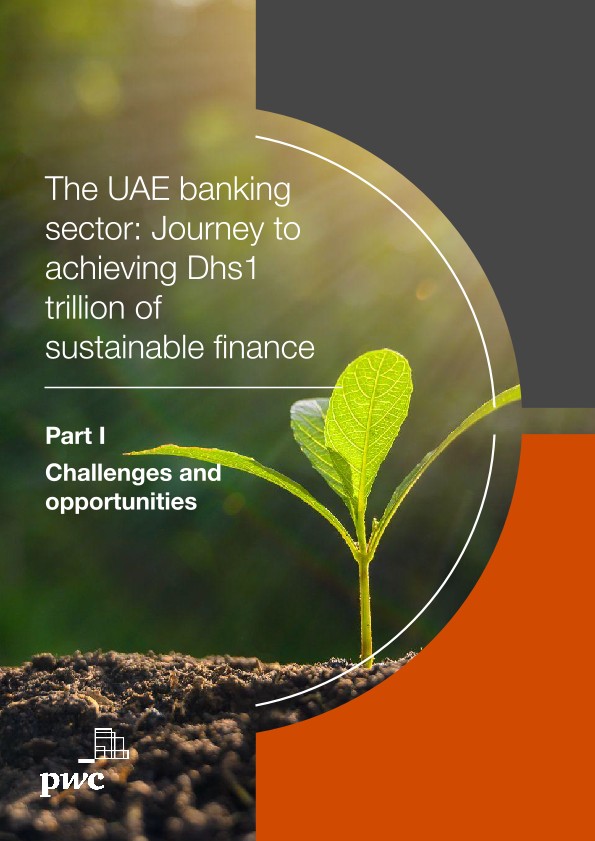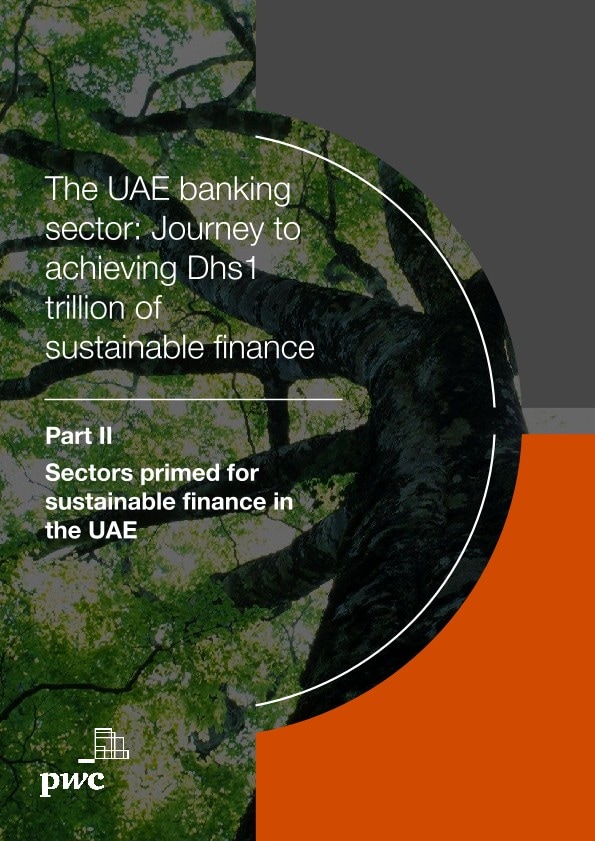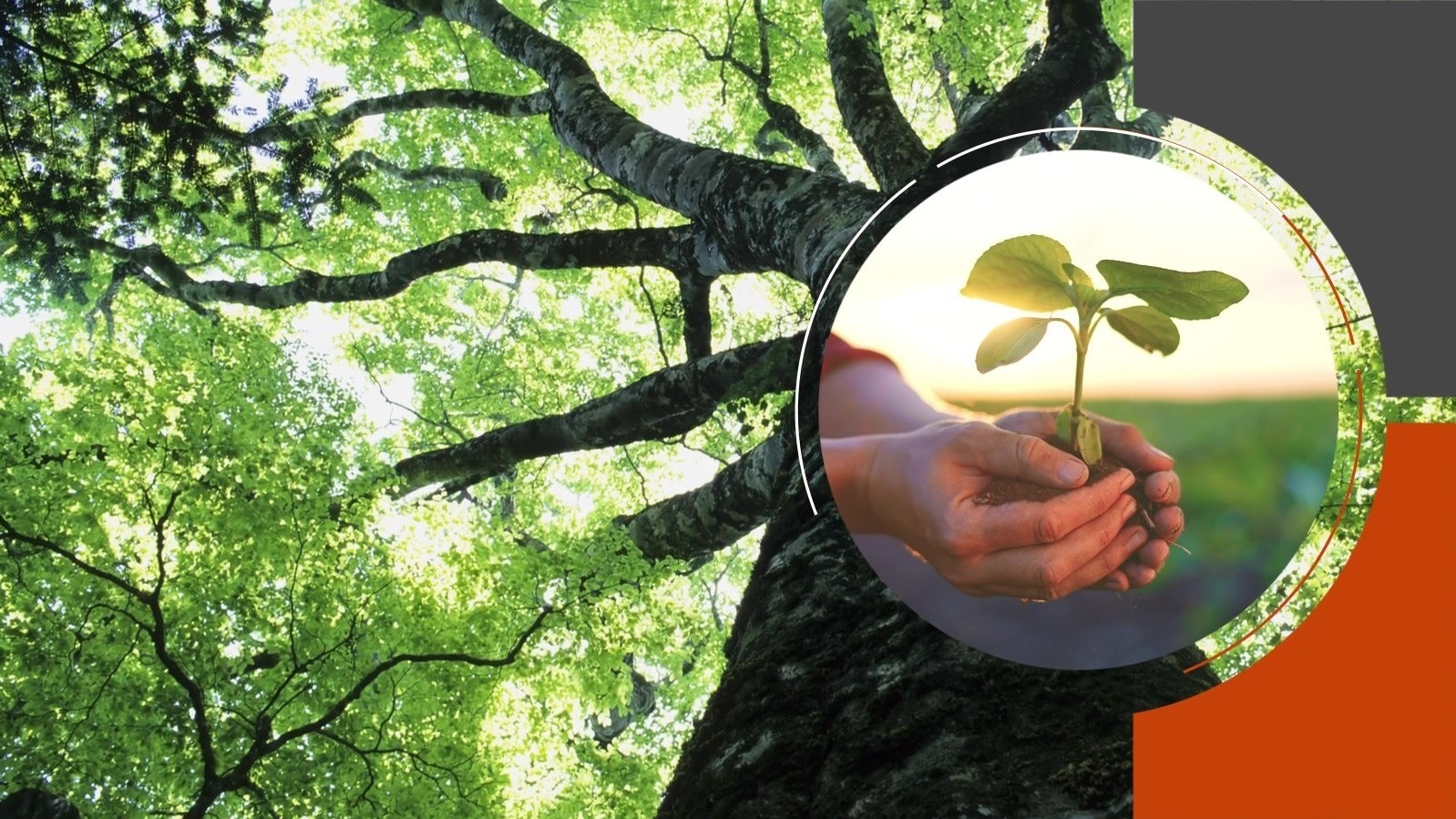Introduction
Sustainable finance plays a critical role in the global transition towards a more resilient and inclusive sustainable economy. The United Arab Emirates (UAE) has committed to transition to a net-zero economy by 20501.
Embracing sustainable finance is not just a strategic imperative but a critical enabler of the country’s vision to become a leading hub for innovation and sustainability in the region and beyond. Estimates from the World Bank2 and Swiss Re3 predict that a lack of climate action could result in climate change negatively impacting MENA GDP by between 4% and 21% by 2050. Therefore, the transition to a net-zero economy requires collective action and a systemic transformation that channels investments to sustainable initiatives and builds resilience to climate change.
In the region, the UAE is establishing an enabling environment for mobilising capital towards green and sustainable projects through more than 26 national and federal initiatives. One such strategic initiative is the UAE Sustainable Finance Working Group, set up in 2019 to centralise sustainable finance activities and harmonise efforts across the emirates to manage climate-related risks and establish disclosure standards4. The UAE will require Dhs2.5 trillion ($681 billion) in investment to finance its transition to a net-zero economy5, underscoring the significant capital commitments needed to drive this transformative agenda.
In this two-part report we:
Examine the role of sustainable finance in accelerating the UAE’s transition to a sustainable economy, identifying and navigating the challenges in the banking sector and wider ecosystem
Assess the sectors primed for sustainable finance in the UAE

Part I : Challenges and opportunities
Download Here

Part II: Sectors primed for sustainable finance in the UAE
Download Here
How PwC is working with the UAE banking sector to drive the sustainable finance agenda
PwC recently worked with the UAE banking sector to develop a sustainable finance strategy and roadmap across both conventional and Islamic banking to establish the country as a prominent global location for sustainable finance.
To determine strategic priorities for the UAE banking sector, we assessed the current state of the UAE sustainable finance market, benchmarked it against leading global markets and identified the challenges and opportunities in the market, which culminated in a multidimensional strategy. This will act as a guide for the UAE regulators and banks as they develop and implement key initiatives to grow the country’s sustainable finance market.
Sustainability and your organisation
At PwC, we bring together our community of sustainability and sector specialists, empowered by technology solutions and data insights to help clients pinpoint the most effective climate actions—to protect your bottom line while creating the most value. From a focused strategy to legal, gap analysis assessments and finance advice, we cover all bases through targeted, tailored solutions that are actionable, reportable, and sustainable—delivering sustained outcomes for all stakeholders.
1. UAE Net Zero 2050, United Arab Emirates Government, (2023)
2. Middle East & North Africa Climate Roadmap (2021–2025), The World Bank, (2022)
3. The Economics of Climate Change: No Action Not an Option, Swiss RE institute, (2021)
4. The UAE Sustainable Finance Working Group Issues Third Public Statement, Dubai Financial Services Authority, (2023)
5. Just in Time: Financing a just transition to net-zero, Standard Chartered, (2022)
Contact us
Sanjay Jain
Partner, Financial Services Industry Leader and Insurance Leader, PwC Middle East
+971 56 676 5946
Anand Balasubramanian
Adil Hunain
FS Consulting ESG and Climate Risk, Senior Manager, PwC Middle East
Mahasweta Mitra
Associate Director, Financial Services and Treasury Risk Management, PwC India
Henna Sakia
FS Consulting ESG and Climate Risk, Manager, PwC Middle East
Together, we can transform the Middle East and unlock inclusive growth through sustainability.
Get in touch








